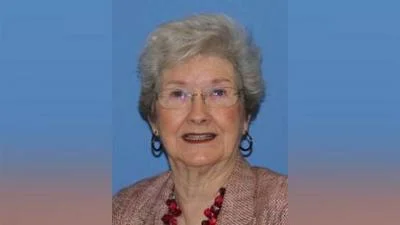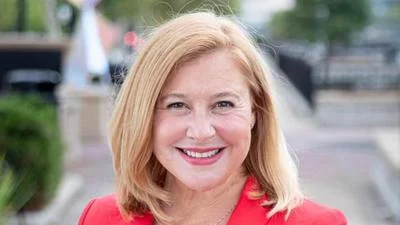When you ask Assistant Professor of Sociology Mia Hardy, Ph.D., what she’s working on in the realm of equity, diversity, and inclusion at Elgin Community College, her excitement to share is palpable, even in on a Zoom call.
“To be able to do EDI work at the college level is like an opportunity to catch students and just pour into them at a really critical point in life,” said Hardy. “At a community college, we have students at all points of their lives. Ensuring that students, especially from underrepresented populations, have the tools they need to be successful requires intentional effort.”
Hardy has been with the college since 2016, starting as an associate dean of college transitions and developmental education. She then served as the associate dean of communications and behavioral sciences before transitioning to a full-time faculty position in 2020. During that time, she was the first administrative co-chair for Teaching Inclusivity, Diversity, and Equity (TIDE) before transitioning to the faculty side. “I love TIDE – it is really an opportunity for faculty to brainstorm and take some action steps about how to be equitable increase equitable environments for ourselves and for our students in the classroom,” said Hardy.
A central activity of TIDE are the Faculty Chats, an unstructured meeting where faculty can bring up topics and talk through challenges with their peers. To Hardy, the low-pressure environment of a chat versus a seminar or workshop helps faculty be more open about the challenges or barriers they are facing. “We're all in different places along the journey,” said Hardy, “but we're dedicated to making the experience better for all students of all backgrounds. Nobody has all the answers as to how to do that, but collectively, we're able to do so much more if we tap into each other's knowledge.”
Working collectively is a big part of Hardy’s ethos, as she is also one of the founding members of the Black Employee Support Team (BEST), a contributing member of the Multicultural and Global Initiatives Committee (MAGIC), and recently worked with five other women of color to launch a new research mentoring program. Mentors include LaTasha DeHaan, Ph.D., assistant professor of history, Marisol Rivera, Ph.D., assistant professor of history, and Chasity Gunn, instructor of English from ECC’s behavioral and communications division and Samantha Friar, Ed.D, director of TRiO student support services.
“Young women of color are still under represented in the research pipeline, so we are guiding them through research projects,” said Hardy. Called Spartan Women Achieving Greatness, or SWAG, students work with their faculty member to design and conduct a research project, going through the entire Institutional Review Board (IRB) process. Later this year, students will have opportunities to present their research at ECC and with the broader community. Eventually, she envisions recruiting faculty from other divisions, like math, science, health professions, and career and technical programs to mentor female students areas across multiple disciplines.
“Research is not a required component of a faculty member at a two-year college, so students can really miss out on that,” noted Hardy. “There aren't that many classes that even introduced the research process, so I think that that's another reason that this project is really important because it allows them to do something that they wouldn't otherwise get to do.”
Pilot program students were selected by the mentors from their classes. “We get to know our students and their interests and aspirations,” said Hardy. Her first student was surprised that Hardy was interested in engaging her. “I just said, you know I see so much in you and I know that you will totally kill this, and I would be so excited and so proud to work with you. I can’t tell you what having someone recognize and nurture your hunger for more means to a woman in academia.”
And the support doesn’t stop once students graduate. Hardy and the other program mentors connect students with research opportunities and faculty at four-year institutions when students are ready to transfer. She sees programs like this as a key to future success for students of color. “It just opens a world of opportunities beyond what we're doing, instilling that confidence that they can do anything, they can be anything. We’re helping them recognize that potential if they yet don't see it themselves.”






 Alerts Sign-up
Alerts Sign-up